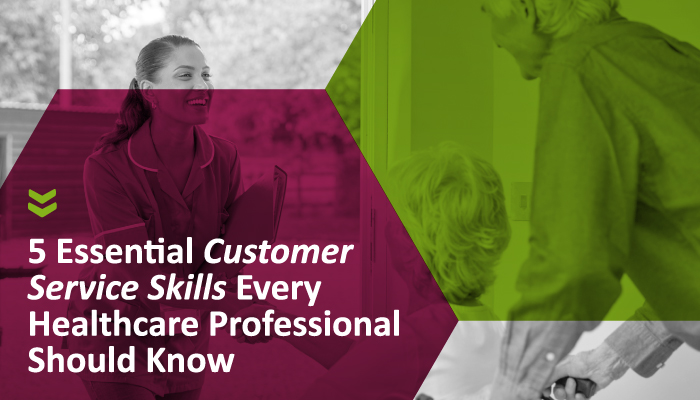
Whether your responsibility is to keystroke information into patient files or answer patient’s insurance questions, providing superior customer service is a significant part of your job. Mastering these five customer service skills for healthcare patients will help your team deliver a patient experience that strengthens their relationship with your organization.
Skill #1: Active Listening
Active listening is the foundation of effective communication and is a critical customer service skill for healthcare professionals. Active listening involves fully concentrating on what the patient is saying, responding appropriately, and asking clarifying questions.
How to Develop:
- Encourage healthcare professionals to practice active listening by providing opportunities to listen and respond to patient concerns.
- Train healthcare professionals on active listening techniques, such as maintaining eye contact, avoiding interruptions, and summarizing the patient’s concerns.
Skill #2: Empathy
Empathy is the ability to understand and share another person’s feelings, and it is an essential customer service skill for healthcare professionals. Patients and their families often feel vulnerable and anxious during their healthcare journey, and showing empathy can go a long way in making them feel heard and supported.
How to Develop:
- Train healthcare professionals to be more empathetic by encouraging them to put themselves in the patient’s shoes.
- Provide healthcare professionals with resources to help them understand the patient’s perspective, such as patient testimonials and feedback.
Skill #3: Problem-Solving
Problem-solving is an essential customer service skill for healthcare professionals, as they often encounter complex and challenging situations. Effective problem-solving involves identifying the problem, analyzing possible solutions, and selecting the best course of action.
How to Develop:
- Provide healthcare professionals with problem-solving training, including techniques such as brainstorming, root cause analysis, and SWOT analysis.
- Encourage healthcare professionals to take ownership of problems and collaborate with colleagues to find solutions.
Skill #4: Positive Attitude
A positive attitude is an essential customer service skill for healthcare professionals. Patients and their families want to feel confident that they are receiving the best possible care, and a positive attitude can go a long way in reassuring them.
How to Develop:
- Foster a positive workplace culture that emphasizes positivity, teamwork, and collaboration.
- Provide healthcare professionals with resources to help them develop a positive attitude, such as self-reflection exercises and positive affirmation techniques.
Skill #5: Time Management
Effective time management is an essential customer service skill for healthcare professionals. Patients and their families expect to receive prompt and efficient care, and healthcare professionals must manage their time effectively to ensure that patients receive timely and appropriate care.
How to Develop:
- Provide healthcare professionals with time management training, including techniques such as prioritization, delegation, and task batching.
- Encourage healthcare professionals to use technology and tools to manage their time more efficiently, such as scheduling software and to-do lists.
Conclusion
Healthcare professionals who possess active listening, empathy, problem-solving, a positive attitude, and time management skills are better equipped to provide exceptional customer service, leading to improved patient outcomes, increased patient satisfaction, and a more positive healthcare experience for patients and their families.
Need A Customer Service Training Workshop For Your Healthcare Team?
Transform your healthcare customer service and see the ripple effects – happier patients, happier staff, reduced risks, and sustainable growth. TrainSMART provides customized in-person or virtual training to equip your people with the skills and mindsets to deliver 5-star service. Our proven curriculum tailored to your needs addresses communication, empathy, wait times, problem-solving, information management, and culture. Invest in your staff today! Learn more about our healthcare customer service training program.